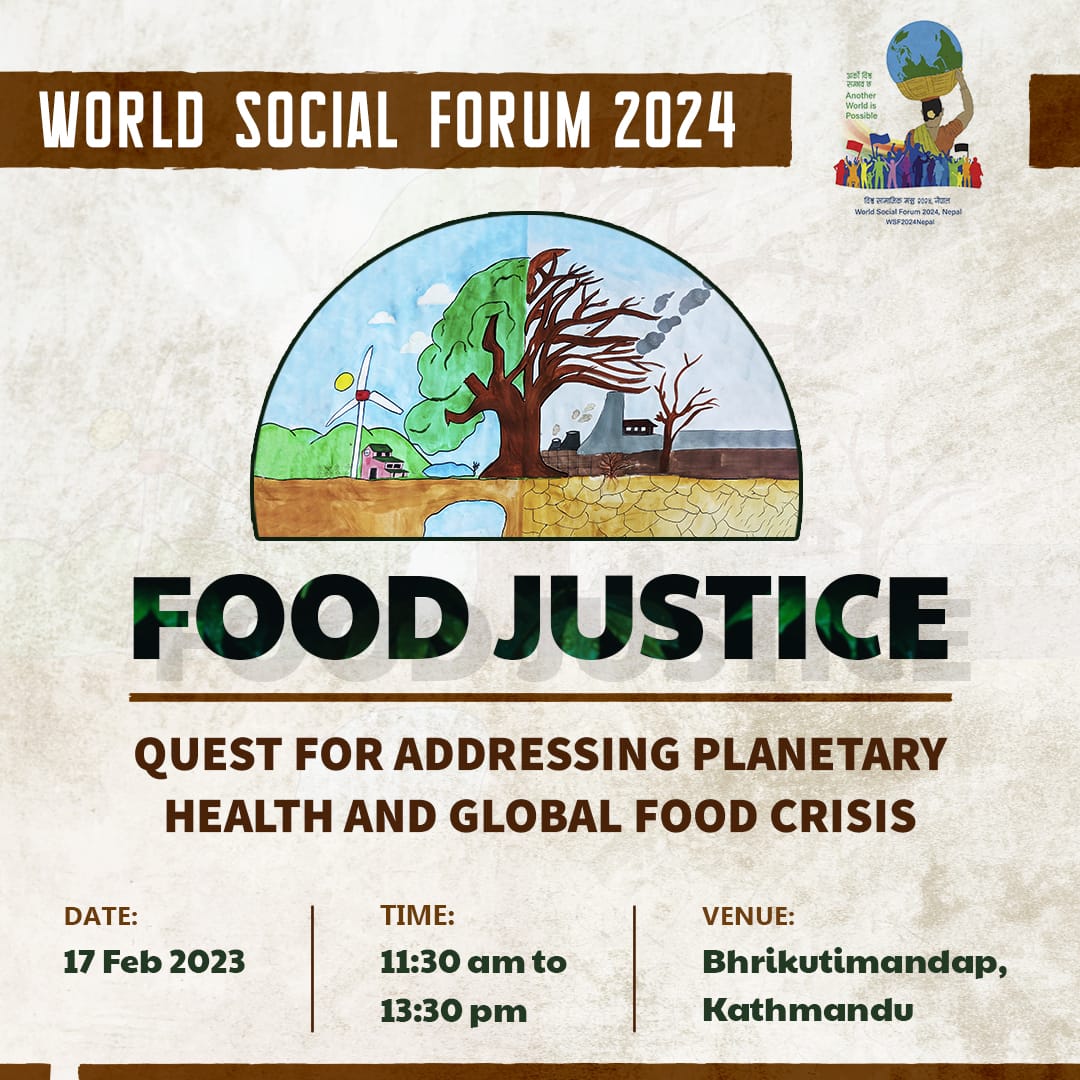

We are facing complex and interconnected challenges in food security across the globe. It has become more and more vital to understand the impact of industrial agriculture on soil as we witness polluted air and water. The record-breaking climate threats because of massive greenhouse gas emissions; rising temperatures, unpredictable weather patterns, and extreme events in farming practices pose threats to our food system.
As a result, there is continued depletion of resources, environment degradation, and biodiversity losses impacting growing displacements, migrations, and conflicts in all life forms globally.
Our aim for the assembly is to share, reflect on the experiences, and talk about the evidence and facts of urgency to act. In solidarity, for change that we need in our society now and today. We propose to collectively explore these issues in this forum with a loud voice and commitment to change.
Three key objectives of the event:
- Raise the concerns on the urgency and need for food democracy addressing planetary health and global food crisis
- Sharing experiences, ideas, and insights on these issues
- Creating a platform for building connections/networking for wider solidarity.
-
VenueKanchenjunga (Bhrikuti Mandap)
-
Cultural activityNo
-
Duration90 Minutes
-
Get in touchVia email and whatsapp
-
Modalityphysical and virtual
-
LanguageEnglish
-
Other LanguageNepali
-
Contact Whatsapp
-
Contact Email
-
Name:Local Initiatives for Biodiversity, Research and Development (LI-BIRD)
-
Name:Local Futures
-
Name:Vikalp Sangam
-
Name:The Timbaktu Collective
-
Name:ForestAction Nepal
-
Name:Centre for Agro Ecology and Development
-
Name:Centre for Educational Policy and Practices
-
Name:Global Tapestry of Alternatives
-
Land, Agriculture, Food Sovereignty, Agro - Ecology. Energy and Natural Resources
-
Climate Justice, Ecology, Just Transitions, Habitat, and Sustainable Development
Document from square of statement:
Dear brothers and Sisters,
A warm welcome to you all to this forum and a Himalayan country Nepal
Lives for the majority of us are riddled with insecurity and fear. Why is this happening, many of us do not know? While those who possess the power of understanding to make a meaningful impact are divided into diverse interest groups, some others are hopeless or depressed.
The rhythm of nature has been disrupted for the past several decades due to violent behavior of human-centered activities. Alarmingly, in recent decades, this trend has been rapidly increasing. Profit without labor, the exploitation of nature, labor and the competition to exploit society are forms of institutional violence. It is not that there is no resistance to it. Such resistance has been happening globally since the colonial period, both in small groups and at the individual level.
War and destruction of nature proved that our efforts are wasted, but this platform of social movement started by the belief that another world is possible without discrimination, injustice and oppression, and there are strong evidences that we are not desperate and our hope is not dead even amidst the growing crises.
The colonial industrial development is destroying all kinds of diversity on this earth. The monopoly of a few over all kinds of resources is increasing discrimination and oppression at all levels. Marginalized working-class communities worldwide are forced to fight hard for life and death.
With the advancement of modern technology developed by humans and the ongoing globalization, development is overwhelmingly having adverse effects, just like a poisonous tree. The exploiters are all desperate to pour water on its roots and nourish it. With some exceptions, market, state and civil society leaders are also running circles behind them. Consequently, marginalized classes, genders, communities and geographies are suffering from internal and external colonial oppression.
Instead of improving the farming system of local characteristics, the physical development based on fossil fuel extraction, over-exploitation of nature, monoculture and farming systems based on artificial chemicals and pesticides, encouraged to be modern. These have increased greenhouse gas emissions; temperature rise and uncertainty not only in the water cycle, also the live cycles. The air is unbreathable. Water is not drinkable. The soil is constantly dying. The integrated agricultural system, which has been improving for centuries due to the interrelationship of air, water, soil and environment, is now facing risks caused by climate change. Instead of traditional knowledge, skills and techniques being natural and sophisticated, there is now a danger of them being lost forever. With its widespread impact and influence, not only our water cycle, the live cycles is now getting disrupted.
In particular, the Raithane - an agriculture system of local characteristics, has been replaced by the Plain agriculture system. We Nepalese living in the watershed of the Himalayas are facing more social, cultural and environmental complications than any other region.
Before it is too late to handle the situation, it is necessary to seriously think about the future of agriculture and food. There should be a proportional distribution of common natural resources, adoption of the natural farming system and the development of agricultural systems of comparative advantage based on the local characteristics. There should be an initiative to reflect on the agriculture system and amend it at all levels.
Overall, if we can't say ‘NO’ this oppression and exploitation of nature will increase even more, and unceasingly. Time is running out, but if we are committed, we can unite and raise our voices to create pressure to change the existing global system, learn from each other by sharing local experiences and practice by ourselves. All Individuals, communities and states who espouse these values, let's come together, join hands in solidarity. Our future will be secured only by our prudent joint efforts. This is the only way forward to save the living planet for ourselves and future generations.
In Solidarity
Alliance of Agriculture for Food and all affiliates
Date: 19.02.2024